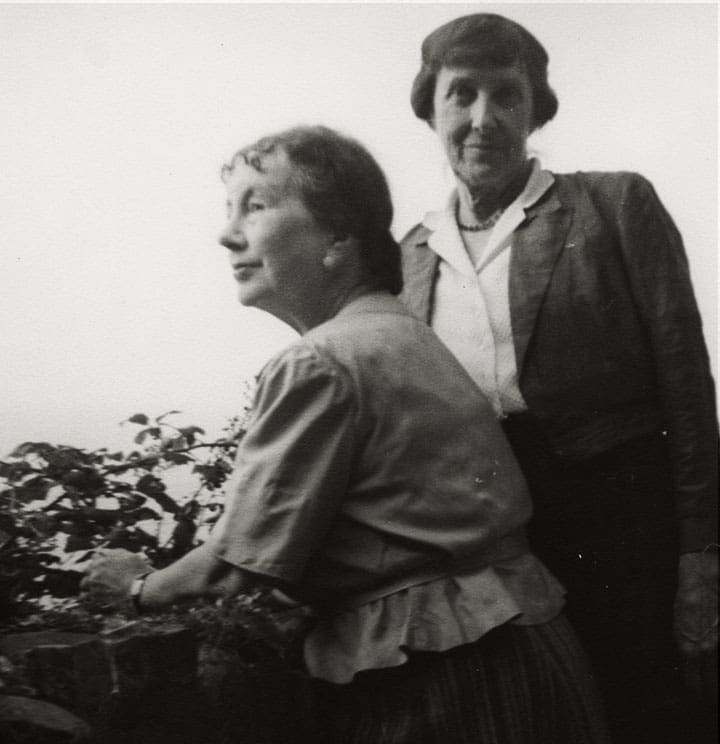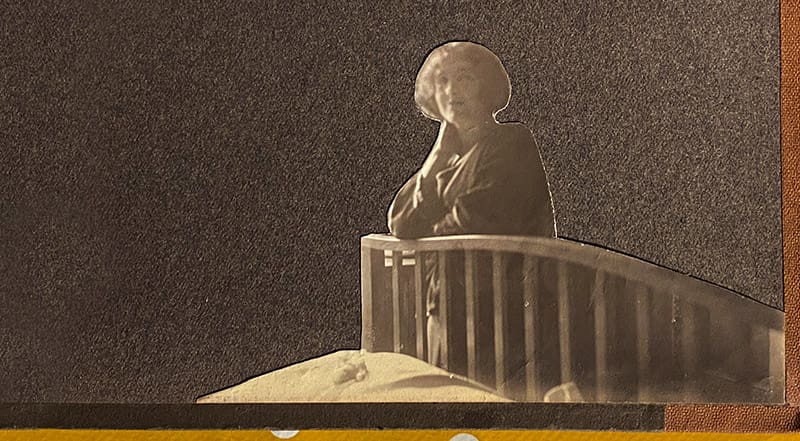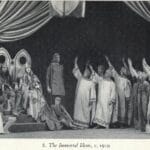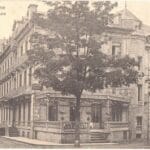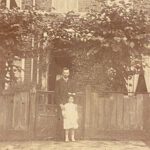… and a Curse on Evil Men!

One of the many reasons I love Mary Stella Edwards’ poetry is that she writes about the more-than-human world in such an unusual way for her time. Even the wooden furniture in her bedroom prickles with agency. In her 1920 poem ‘The Chestnut Tree’ she writes: “The bed-post looks askance at you. Don’t dare / To think you cannot hurt it. If it could / It might do more than stare.”
The particular Chestnut tree of this poem is the one that was just outside her bedroom window. Edwards grew up on Fairfield Avenue in Staines – and chestnut trees lined the pavement. It’s clear from the poem that she loves this tree deeply and feels at one with it. She describes it as “my friend who strangely understands / My voiceless spirit’s call.” I’ve included the whole poem with this blogpost. Try reading it out loud. The first time I did that, the hairs on the back of my neck stood up.
A Lament
I was therefore shocked to read Edwards’ journal entry for 6 November 1924. In it, she reveals the news that the chestnut trees are being cut down… even as she writes. She describes the row she had with her parents too, which is very revealing of her relationships with them. I’ve included her entry in full below. It’s worth bearing in mind that in 1924 Edwards did not have the vote, so the councillors are very unlikely to have taken any notice of her opinion. “M” and “F” was her abbreviation of “Mother” and “Father”.
6 November 1924
By “The wish of the majority” of the inhabitants of this avenue, but I’m sure engineered by the soulless strutting Mr Godfrey and approved by the officious and ignorant Mr Barrett, the lovely Chestnut Trees, dear companions of my last twenty-two years of life, are being cut down. The workmen are here this morning and each stroke of the pick striking towards their splendid roots seems to strike straight through my heart. If only I could let them know that I wrote a letter and did all I could to save them! Surely they will not suspect me of being among the damned in this case… Yesterday when I heard the news a poem for them presented itself completely to my mind and was written in just over five minutes “Lament for Murdered Trees and a Curse on Evil Men”. I read it to the family, but they didn’t understand. F thinks they have a life of their own, and even enjoyment and sorrow, but that the essence of life is sacrifice and it is expedient that one tree should die for the people. (But _such_ people! And they’ve only been moved because they are breaking the pavement a bit, and they want to lay down new paving stones) But M said “Absurd to think that a tree can feel!” I broke down utterly and cried – partly tears of grief for the trees destroyed in their prime, partly tears of self-pity that no one could share my feeling. I am told it is hysteria… Never again from my window shall I wave goodnight to the stars and to the moon through the black boughs of my nearest tree where the owls used to sit till they were driven away. Soon all beauty will be driven from the world… They call this feeling about trees an obsession, but I must have had it when I was four or five and shouted to the men who were cutting down an apple tree next door that I should throw sticks at them
“Share my feeling…”
Decades later, in 2016, the people of Sheffield would feel exactly the same way about their street trees – and protest to save them. Strangely, those trees were also accused of breaking the pavements though this proved to be untrue.
I have not included Edwards’ poem ‘A Lament for Murdered Trees and a Curse on Evil Men’ with this blogpost for two reasons. First: as she felt so angry when she wrote it, her handwriting is more than usually difficult to decipher, and I am still working it out. Second: as she writes herself, she wrote it in five minutes, and I would say that it’s not Edwards’ finest poem. Sometimes I feel her at my shoulder, and I’m not sure she would want it on this blog. The title really does express the poem perfectly, and I for one would like it on a t-shirt.
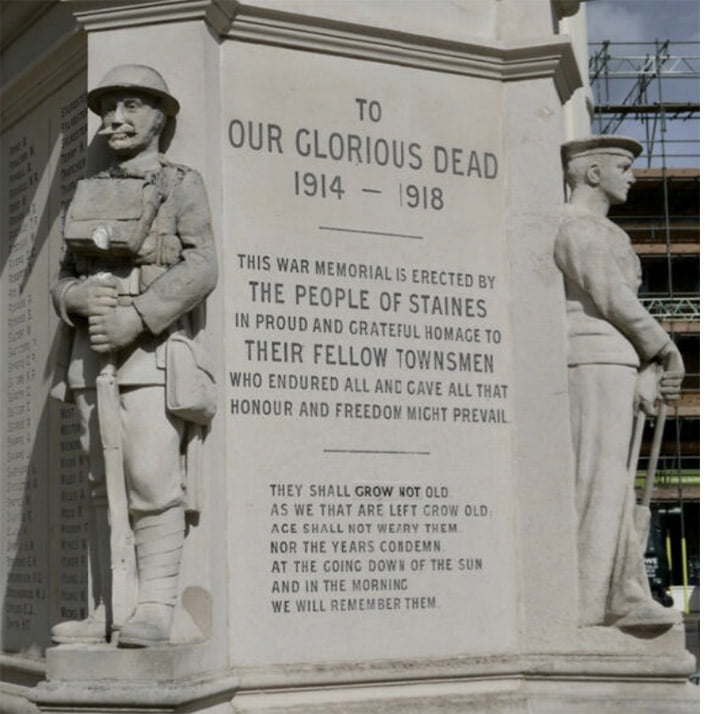
Afterword
This same councillor Mr Barrett was responsible for misquoting the poem by Binyon on the Staines War Memorial. He claimed that “They shall grow not old…” was grammatically incorrect and instructed that “they shall not grow old…” be used instead. I notice that this has now been corrected – but you can still see the evidence of his mistake. In the 1980s, Mary Stella was still gleefully naming and shaming him in her correspondence!
I went on a pilgrimage to Fairfield Avenue in Staines in March 1924. Of course, I knew that 12 Fairfield Avenue was long gone. The street would be unrecognisable to Mary Stella Edwards. However, in a tiny park just behind the street, there was a large and majestic Horse Chestnut of about the right age… and I wondered whether just one tree had escaped the pickaxes of 1924.
Previous blog: Letters from Gilbert Murray
